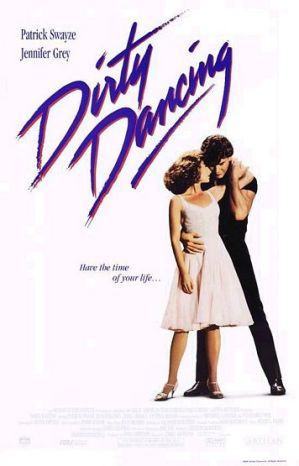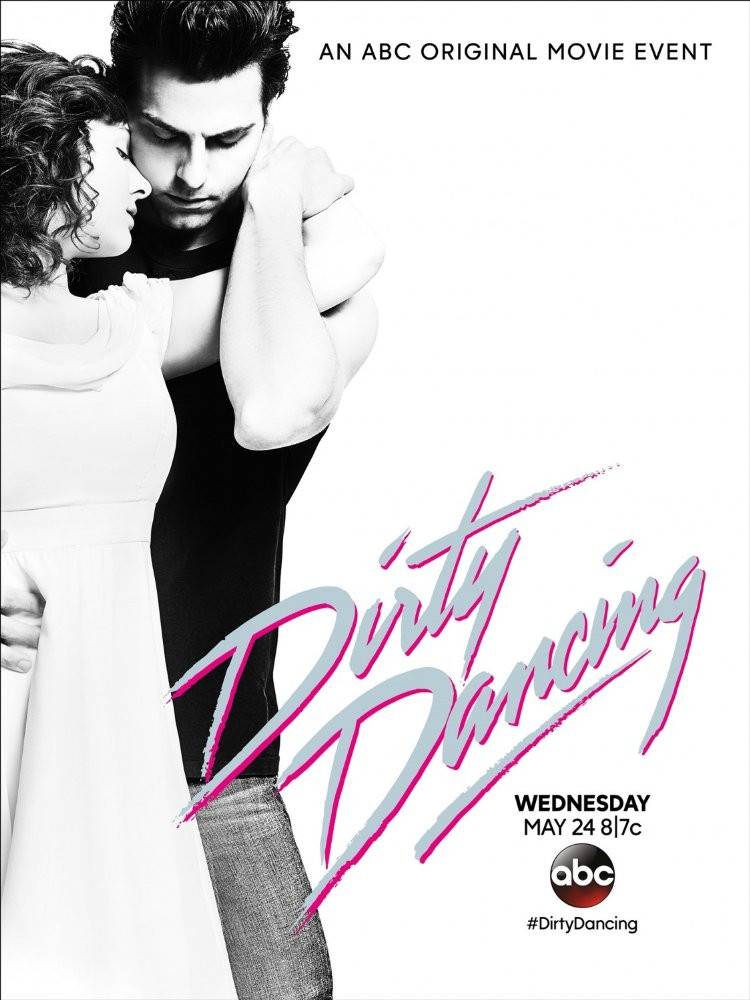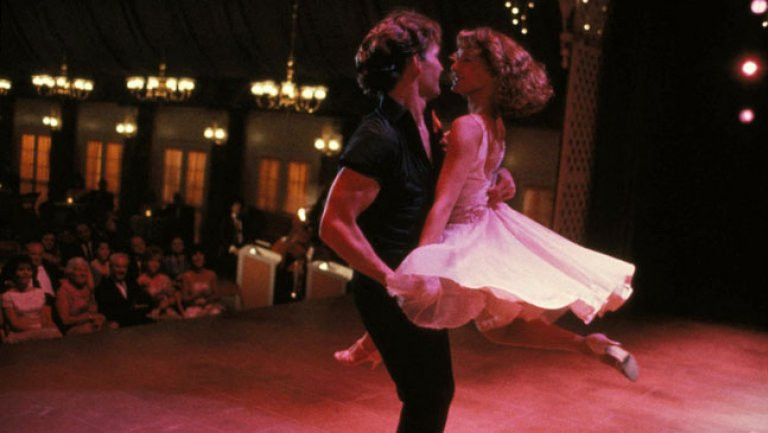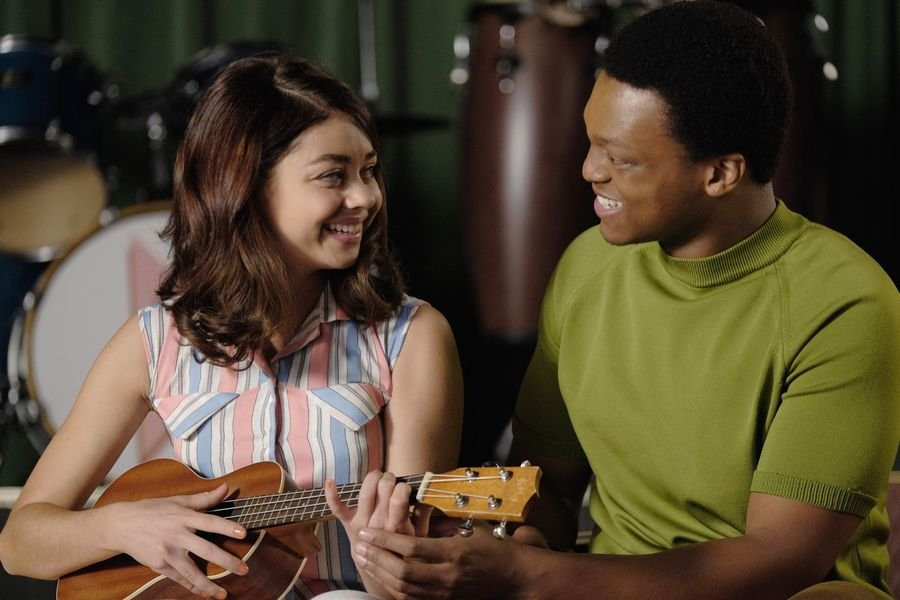As a devoted fan of movies, particularly musicals and dance films, the announcement of a Dirty Dancing remake should have filled me with excitement. Having even enjoyed the stage adaptation, I anticipated that this remake would be right up my alley.
 Dirty_Dancing
Dirty_Dancing
However, like many others, I found the remake to be deeply disappointing. Today, let’s delve into the reasons why this version fell so short of the beloved original. It’s not simply a case of tampering with a classic; there are specific flaws that made this remake particularly weak. Be warned, spoilers ahead!
One of the initial missteps was the casting of Abigail Breslin as Baby. While Breslin is a talented actress, she wasn’t the right fit for this iconic role. In the original Dirty Dancing movie, Jennifer Grey’s portrayal of Baby was characterized by her initial lack of dance experience. Her movements were endearingly awkward, her hips seemingly rigid. Yet, through her dance journey with Johnny, she blossomed, developing grace and fluidity. This transformation was a key part of Baby’s character arc and incredibly satisfying to watch.
 dirty dancing remake
dirty dancing remake
Unfortunately, Breslin’s performance never quite captured this evolution. Her dancing felt consistently unpolished throughout the film. The pivotal mambo scene at the Shelldrake, which should have been a triumphant moment, resembled an early rehearsal from “Dancing with the Stars.” It lacked the captivating progression and genuine spark that made Jennifer Grey’s performance so memorable in the original Dirty Dancing movie.
Another significant deviation from the original that proved problematic was the unnecessary plotline involving Johnny’s relationship with Vivienne. In this remake of Dirty Dancing movie, Johnny is depicted as being romantically involved with Vivienne while simultaneously developing feelings for Baby. While this was seemingly introduced to create a setup for the watch storyline, it fundamentally altered Johnny’s character in a negative way.
 finale
finale
The issue isn’t prudishness; it’s about character integrity. When Penny urges Johnny to end things with Vivienne, his response that he’ll “be back in her bed later” is jarring. This undermines the supposed depth of his burgeoning feelings for Baby. A man supposedly falling in love wouldn’t typically plan to return to another woman’s bed immediately after ending a relationship to pursue that love. This plot point tarnishes Johnny’s character, diminishing the “bad boy with a heart of gold” persona that was so central to the original Dirty Dancing movie’s appeal. Furthermore, the iconic black pants and jeans associated with Patrick Swayze’s Johnny were noticeably absent, replaced with less impactful wardrobe choices that felt anachronistic.
Musically, while Colt Prattes, who played Johnny, singing the songs was a potentially interesting addition for musical enthusiasts, the execution fell flat. The songs themselves were heavily reworked, straying too far from the beloved original soundtrack. They sounded amateurish, as if produced with low-quality sound equipment. The choreography also seemed compromised, likely simplified to accommodate the singing, despite the singing not even being live.
A prime example of this watered-down choreography is the iconic “carrying a watermelon” scene. Famously misquoted in the remake, the scene lost its sensual energy. Instead of the suggestive, close-contact dancing of the original, it became a mundane walk-around while Johnny sang. The raw chemistry and “dirty grinding” that defined the original scene were completely absent in this remake of Dirty Dancing movie.
The bizarre inclusion of Vivienne singing “Fever” was another perplexing choice. This scene, where Vivienne performs a burlesque-style number, felt completely out of place and served no discernible plot purpose. Like Baby’s dancing, Vivienne’s performance was awkward and lacked any real dance ability, involving little more than walking around Johnny. It felt forced, unnecessary, and primarily designed to give actress Katey Sagal a more prominent role. If that was the intention, recasting the role would have been a more effective solution. In contrast, Debra Messing’s singing scene as Baby’s mother was genuinely well-done and effectively enhanced the relationship between the Housemans, contributing meaningfully to Baby’s character development and leading to a rare strong scene for Baby with Johnny.
Finally, the ending of this remake of Dirty Dancing movie deviated significantly and unsatisfactorily from the original. While the idea of Baby becoming a writer is a positive, independent choice, the way the remake handles the reunion with Johnny is deeply flawed. Instead of a heartwarming reunion, the ending depicts Baby as married, flaunting her new husband in front of Johnny. Where is Johnny’s equivalent success or partner? This ending suggests Baby has achieved a perfect life while Johnny is left wistfully admiring her from afar. Johnny’s line, “keep dancing,” feels hollow in this context. Instead of a hopeful, implied happily-ever-after for Baby and Johnny, the remake provides a depressing and anticlimactic conclusion. The entire tone, including a cheesy sing-along at the beginning, resembled a low-budget television movie rather than a worthy reimagining of a classic film. The missed opportunity for a joyful, dance-filled reunion in the theater is particularly disappointing.
The failures of this remake of Dirty Dancing movie echo similar missteps in remakes of other beloved musicals like Grease, Hairspray, and The Sound of Music. A key takeaway is the need for casting directors to prioritize talent over celebrity names. For musicals and dance movies, performers must be able to act, sing, and dance convincingly, ideally simultaneously. Sometimes, this means discovering fresh, unknown talent rather than relying on established but ill-suited Hollywood stars. Audiences may initially tune in out of curiosity, but they won’t return if the quality continues to suffer due to miscasting and misguided creative choices.
Despite the numerous criticisms, there were a few redeeming aspects in this remake of Dirty Dancing movie. Nicole Scherzinger’s portrayal of Penny was a standout. She captured the character’s attitude, and her singing and dancing were genuinely impressive. The expanded roles for the Houseman parents, giving them their own subplots and mature problems unrelated to infidelity, were also a welcome addition. Sarah Hyland’s character development, evolving beyond a superficial portrayal to a more nuanced role, was another positive element. Even her somewhat cheesy storyline with her son was more palatable than certain aspects of the original.
 nicole
nicole
 sarah hyland
sarah hyland
In conclusion, while the remake of Dirty Dancing movie had a few sparks of promise, ultimately, it failed to capture the magic, heart, and iconic dance sequences that made the original film so beloved. Miscasting, plot missteps, musical misinterpretations, and a disappointing ending all contributed to its downfall. It serves as a cautionary tale about the challenges of remaking a classic and the importance of prioritizing talent and staying true to the spirit of the source material.
About the Author
Sarah Fischer is a background investigator and a romance novelist. She lives in Maryland with her husband and two cats. You can usually find her at the movies or road tripping to New York for a new play. Her books, First Semester and Craving Bad: A Bad Boys and Wicked Girls Anthology
Both Books Can Be Seen HERE
 Craving Bad 1
Craving Bad 1
 img_2823
img_2823
Share this:
Like Loading…
Related
Published by AKissAtMidnight
View all posts by AKissAtMidnight

